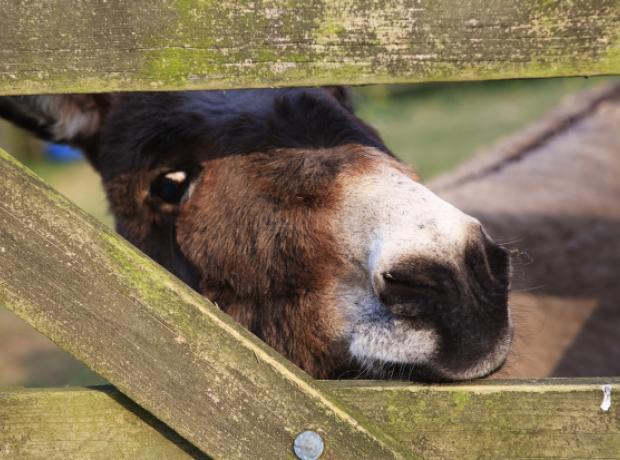Links to vets in Guernsey
Local useful links
Website donated by:

Last Winter the GSPCA received large number of calls from concerned members of public about horses and other animals in wet and muddy fields and once again we are preparing for a similar season with the current weather conditions.
Unfortunately due to the very wet Winter we had to endure here in Guernsey last year the GSPCA had a number of animals that were reported to the GSPCA in concerning conditions.
Lorna Prince GSPCA Animal Welfare Manager said ‘With such a wet Winter last year many animals were affected, both wild and domestic.’
‘Already we have had quite a few calls from concerned members of public about outdoor animals and their conditions this Autumn.’
‘If anyone is concerned about an animal’s condition then they can call the GSPCA on 01481 257261 and we will look into it but we have placed a little advice to help horse and pony owners on our web site and a link to other Winter advice.’
'Due to the bad weather we had last year in comparison to the Winter of 2011, calls about concerns of animals in wet conditions went up by over 200% and we are hoping by following this advice we can prevent a similar occurrence.'
Steve Byrne GSPCA Manager said ‘This time of year is often challenging for livestock, horse, pony and donkey owners.’
‘In muddy conditions it is extremely important that a horse has an adequately sized, well-drained area in the pasture on which to stand and lie down, and on which to be fed and watered.’
‘We are really concerned about the animals out in this awful weather and we do sympathise with the owners and if anyone needs advice then please do call.’
‘The cold is drawing in again and we would like to remind owners of horses, ponies and donkeys what you can do to help your animals.’
Wet Winters prove a challenge for horses, ponies and their owners. Animals that live outside must cope with everything the weather can throw at them, and owners must ensure that the extra care and attention is given to these animals.
You may be surprised at how well horses can adapt to colder weather. Although horses have been domesticated for over 6000 years in the wild, horses can withstand temperatures at well below zero. However, there are a number of things that you can do to maximize your horse's health and condition during the colder months
With short days and cold long evenings and wet weather you have to think about the following -
You need to ensure a good working routine. Work out how you will manage to care for your horse in these very wet cold months and make sure you can fit your horse's care into your day or you have someone to help assist you.
If you are cannot devote more time to your horse's care during the winter wet months, consider keeping your horse at full livery, where there is adequate winter turnout and a high standard of daily care.
In muddy conditions it is important to provide adequately sized, well-drained area where possible or look at other alternatives.
Short days add to the complication of winter care. Make your first visit to your horse each day as early in the morning as you can. If there is a problem, you can call for assistance in daylight.
There are a real variety of different rugs on the market to suit all types of donkeys, horses and ponies. Rain sheets are also available to offer a protection from wind or rain and there are thicker rugs also available and it is best to ensure you use the right rug for your animal(s).
If you plan to ride your horse in winter, beware of getting your horse sweated up in the afternoon as horses can easily catch a chill. Also ensure that you and your horse have appropriate clothing to ensure that you are able to clearly be seen.
Make arrangements with an experienced person to take care of your horse in the event of an emergency, for example if you are ill, delayed or cut off by bad weather. A starting place could be one of the local groups or clubs who will have a network of experienced owners.
More than anything you MUST remember that your horse needs you.
If you need further advice you can call the GSPCA on 01481 257261
For more information on animal winter advice please go to http://www.gspca.org.gg/blog/taking-care-your-pets-cold-weather-coming
Photograph by Ally Clark
There are many ways to support the work of the GSPCA and you can even donate online by clicking the paypal link below.

Have you liked us on facebook yet or joined us on twitter?
Date | Event | For more details |
Details to follow | Bric-A-Brac, Clothes, Coffee & Snacks at the Shelter |
|
Monday – Saturday 9am – 5pm | Pet Supplies & GSPCA Goods on sale at the GSPCA Reception |
|
Wednesday 20th November 6.30pm | Volunteer Induction Evening at the Animal Shelter |
|
Saturday 23rd &30th November | GSPCA meets Pegasus Photography for Pet Portrait Photo Sessions! Saturday 23rd and 30th November 2-6pm |
|
Sunday 17th November | Round Table Christmas Fair - a stall with all sorts of goods and tombola |
|
December Thursdays | Late Night Shopping GSPCA Stall in town |
|
Date and details to be confirmed | Christmas Fair |
|
16th to 21st December 2013 | Christmas Pop Up Shop on Smith Street thanks to OSA Recruitment |
|
January 2014 | Start of the Animal Care Course with WEA at the GSPCA |
|
To find out about how to become a Member, Sponsor an Animal Pen, our Wish List, Corporate Sponsorship & Volunteering, Events, our Cattery Appeal and much more please click here.



Post new comment